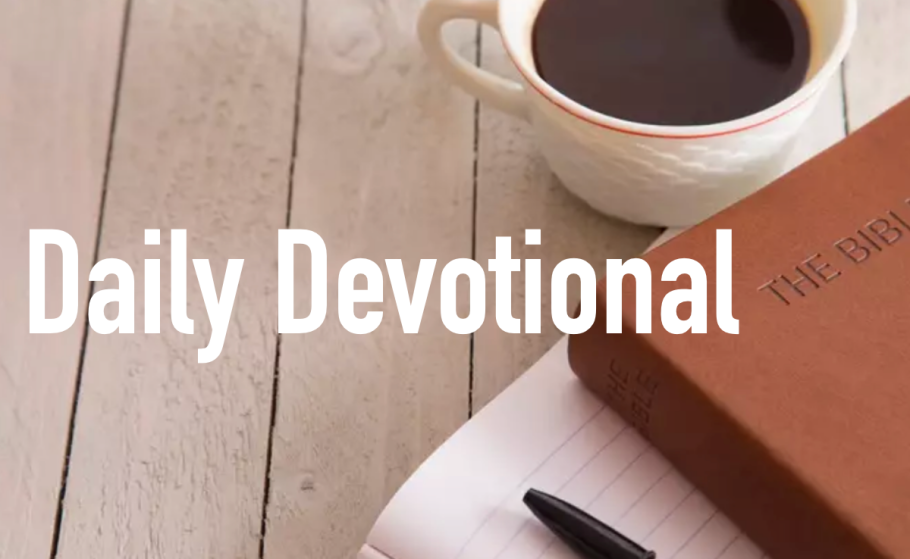
Do you remember report card day in elementary school? Your teacher would send home a report card that evaluated how well you performed at math, science, and the rest of your subjects. If you got good grades, you were happy to bring your report card home. But if your report was less than stellar, you hid it at the bottom of your backpack.
In chapter 31, we get Job’s report card. In a self-evaluation, Job expresses the integrity of his life. He had fulfilled the requirements of God’s Law, and more. He did not follow the longings of his flesh but lived a blameless life (v. 6). Job lists a series of challenges that begin with “if.” In essence, “if” he did these things, then his punishment would be justified. However, implied in these challenges is the truth that he hadn’t done them.
He lists example after example: “If I have walked with falsehood” (v. 5); “if my steps have turned from the path, if my heart has been led by my eyes, or if my hands have been defiled” (v. 7); “if my heart has been enticed by a woman, or if I have lurked at my neighbor's door” (v. 9); “if I have denied justice to any of my servants” (v. 13); “if I have denied the desires of the poor” (v. 16). Job concludes: “If I have concealed my sin as people do, by hiding my guilt in the crowd,” then God’s punishment would have been justified (v. 33).
Clearly, Job lived a remarkable life. In both Job 1:1 and 1:8, he is described as “blameless and upright; he feared God and shunned evil.” Job is not hiding his report card. His life was an open book, clearly demonstrating His obedience and respect for God.
Go Deeper
If you were to look back at your faith journey, what do you think your own report card would look like? Consider how you can aspire to fear God and live a life that is blameless and upright.
Pray with Us: God of light and truth, before the brightness of Your presence even the angels veil their faces. Yet You came to dwell with us in Christ. You’ve shown us the path of righteousness. Keep us, we pray, from straying from this path!

Is there a time in your life that you would love to revisit? For me, it would be the summers during my elementary school years. They were filled with bike riding, popsicles, ice cream, picnics, and playing with friends. My biggest concern was: “Is it going to rain today?”
Job reminisced about days that were much more consequential than just childhood memories. Job longed for the days when he was in intimate fellowship with God. He began in chapter 29 with the words: “How I long for the months gone by, for the days when God watched over me” (v. 2). “Oh, for the days when I was in my prime, when God’s intimate friendship blessed my house” (v. 4).
Job recalled God’s goodness in his life. Poetically Job states, “My path was drenched with cream and the rock poured out for me streams of olive oil” (v. 6). What a beautiful picture of God’s generous love and guidance! God had elevated Job to a place of influence. “When I went to the gate of the city and took my seat in the public square, the young men saw me and stepped aside and old men rose to their feet” (vv. 7–8).
We are given insight into the type of man Job was, a man of kindness and justice. “I rescued the poor who cried for help and the fatherless who had none to assist him. The man who was dying blessed me and I made the widow’s heart sing. I put on righteousness as my clothing and justice was my robe and my turban” (vv. 12 –14).
Job’s walk with God was as intimate as a person’s walk could be. His service to God was a model for others to follow. Job provides a model for us in our own walk with God.
Go Deeper
As you reflect on your life, how has God blessed you? What can you resolve to do today to pursue God and a deeper relationship with Jesus Christ?
Pray with Us: Lord, our hearts are full of gratitude for the faithful believers we encounter in Your Word, men and women of God, Job among them. May we learn from them with open hearts, modeling our own walk with You on their example.

In a court trial, each lawyer is given the opportunity to make a closing argument before judge and jury. In the same way, in chapter 25 of Job, we hear a final speech from Bildad. He starts out strong, proclaiming: “Dominion and awe belong to God” (v. 2). In verses 3 and 4 he continues by asking profound questions. If he had ended after verse 4, we would feel compelled to join him, declaring: There is nobody like our God!
But unfortunately, Bildad kept talking. Verses 5 and 6 exposed his skewed view of humanity. Bildad compared men and women to maggots; a human being to a worm. These derogatory statements were directed at Job, who was in poor physical condition. Bildad was trying to put Job in his place.
In his commentary, Tremper Longman contrasts Bildad’s view with the psalms: “The psalmist is moved to reflect on the dignity of humanity by saying: ‘You have made them a little lower than God, and crowned them with glory and honor. You have given them dominion over the works of your hands; you have put all things under their feet, all sheep and oxen, and also the beasts of the field, the birds of the air, and the fish of the sea, whatever passes along the paths of the seas’ (Psalm 8:5–8 NRSV).”
Bildad had forgotten that God created humans in His own image. Scripture states, “So God created mankind in his own image” (Gen. 1:27). While it is true that God’s image in humanity has been marred by sin, we are not maggots. We are given worth and dignity by our Creator.
In verse 4, Bildad asked, “How then can a mortal be righteous before God?” The answer is we are made righteous by placing faith in the Person and work of Jesus Christ.
Go Deeper
Have you placed your faith in Jesus Christ for salvation? If not, why not talk to a pastor or a Christian friend about this today? Or go to moodybible.org/knowing-christ.
Pray with Us: Jesus our Lord, help us cast aside our own ambitions and pursuits. Teach us to seek Your purpose for our lives and find our worth and dignity in You, our Creator and Redeemer. Amen!

In high school, I played on the football team. During the off season, the coach would have us lift weights. He had one strict rule when bench pressing. “You must have a partner to make sure you can get the heavy weight off your chest if needed.”
Job was looking for one of his friends to help him with the heavy weight that God had laid upon him (v. 7). Instead, they exalted themselves above him and used his humiliation against him (v. 5). Job had concluded that God had purposely caused the loss and pain in his life. Although, he was not sure why God has done this, he was confident that God was angry with him (v. 11). As a result, he had been disrespected by his servants (v. 15) and little children (v. 18). He had become offensive to his wife (v. 17).
It is easy to understand Job’s emotional hurt. All he wanted was genuine emotional support from his friends (v. 21). It is here that Job pivoted in his argument. First, he desired that his words, which his friends despised, be recorded forever (vv. 23–24). I wished he could hear me say, “Job, they were recorded! They are in God’s Word for all eternity!”
Second, he stated that he knows that his Redeemer lives and that one day he will see Him with his own eyes (vv. 25–27). Job had insight regarding the Redeemer, His coming, and Job’s own resurrection. To this I say, “Amen, Job!” Our Redeemer, Jesus Christ lives! He is coming back for us! He has secured our resurrection! We will see Him with our own eyes!
Job has given his friends (and us) a theology lesson. In chapter 9, Job desired an arbitrator. By chapter 16, Job knows he has an advocate. Here he declares, confidently, that he has a Redeemer. If only his friends would listen!
Go Deeper
How is Jesus our Arbitrator, Advocate, and Redeemer? Why do each of those roles make a difference to us?
Pray with Us: Lord God, You are indeed our Advocate and Redeemer! Job knew it, and we know it! We are safe in You. “What a fellowship, what a joy divine,/Leaning on the everlasting arms.” (Showalter & Hoffman, 1887)

Job responds to his so-called friend Eliphaz by making a statement of which most of us would agree: “You are miserable comforters, all of you!” (16:2). Again, the goal of his friends was to have Job confess to something that was not true. But, holding firm to his integrity, Job would not do it.
Job was bewildered regarding the reason for his misfortune. But he seems even more bewildered by the response of his friends and acquaintances. He states, “People open their mouths to jeer at me; they strike my cheek in scorn and unite together against me” (16:10). Whether striking the cheek is meant literally or figuratively, these responses were painful to Job.
The beautiful thing about Job, which is often missed in the back-and-forth dialogue, is his hope in God in the midst of his loss. Three wonderful verses are placed in the center of his response. He exclaims, “Even now my witness is in heaven; my advocate is on high. My intercessor is my friend as my eyes pour out tears to God; on behalf of a man he pleads with God as one pleads for his friend” (16:19–21).
Earlier in the book, we read that Job was looking for an arbitrator. Now, he declares that he has an advocate in heaven that is pleading on his behalf. Job is certain that even if men and women falsely accuse him, he has an advocate in heaven. We know that Advocate to be Jesus Christ (1 John 2:1).
In the crucible of his conflict, one of two things is happening. Either Job is progressively sharing more of the truth he knows, or Job is realizing more about God in the midst of his turmoil. Either way, it is a reminder to us that often we walk closer to God during times of pain and are more open to His truth when we hurt.
Go Deeper
Have you ever been falsely accused? In your own experience, have hard times driven you closer to Jesus or away from Him?
Pray with Us: Loving God, we find great comfort in Your words: “Come to me, all you who are weary and burdened, and I will give you rest” (Matt. 11:28). You are our refuge and strength, and You can redeem even the times of pain and suffering.

